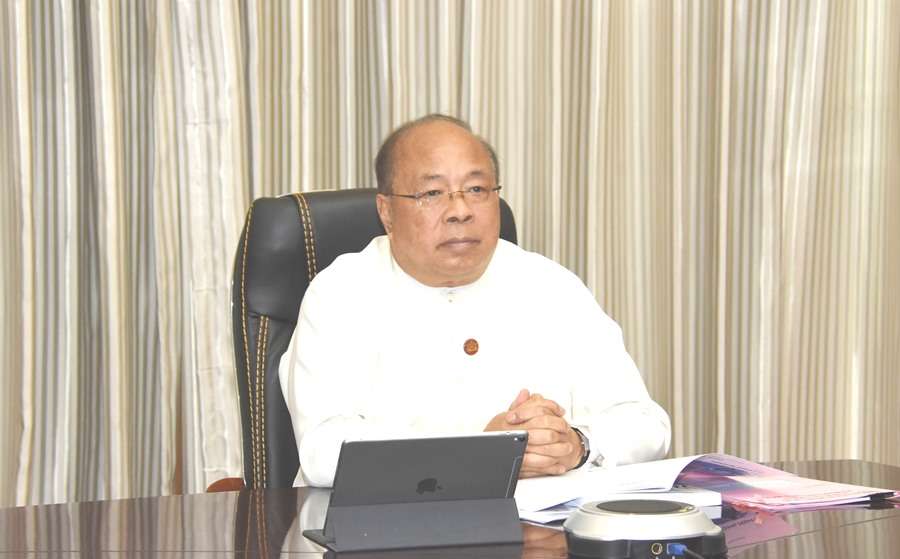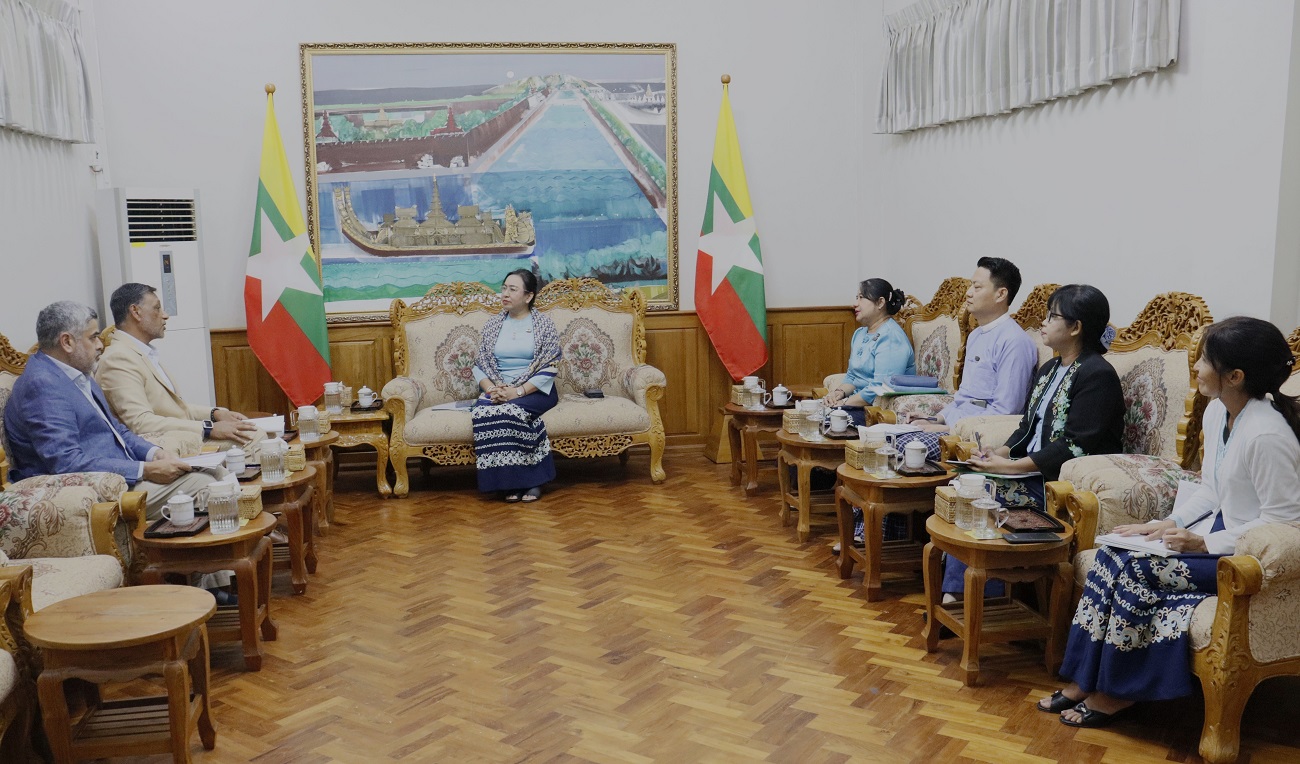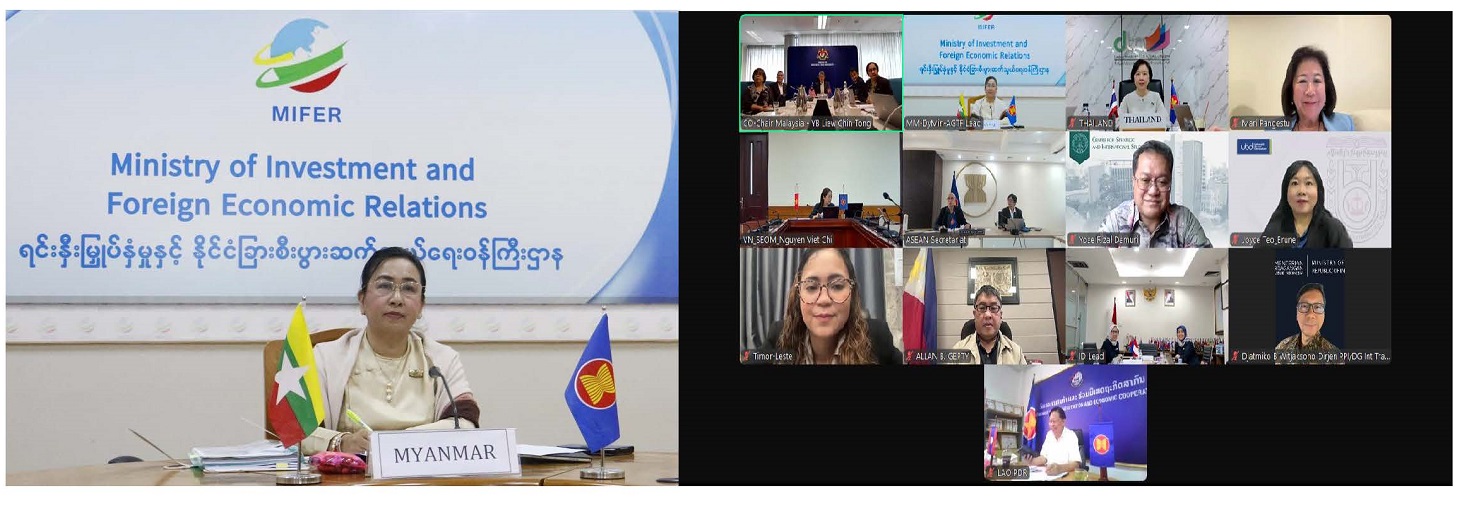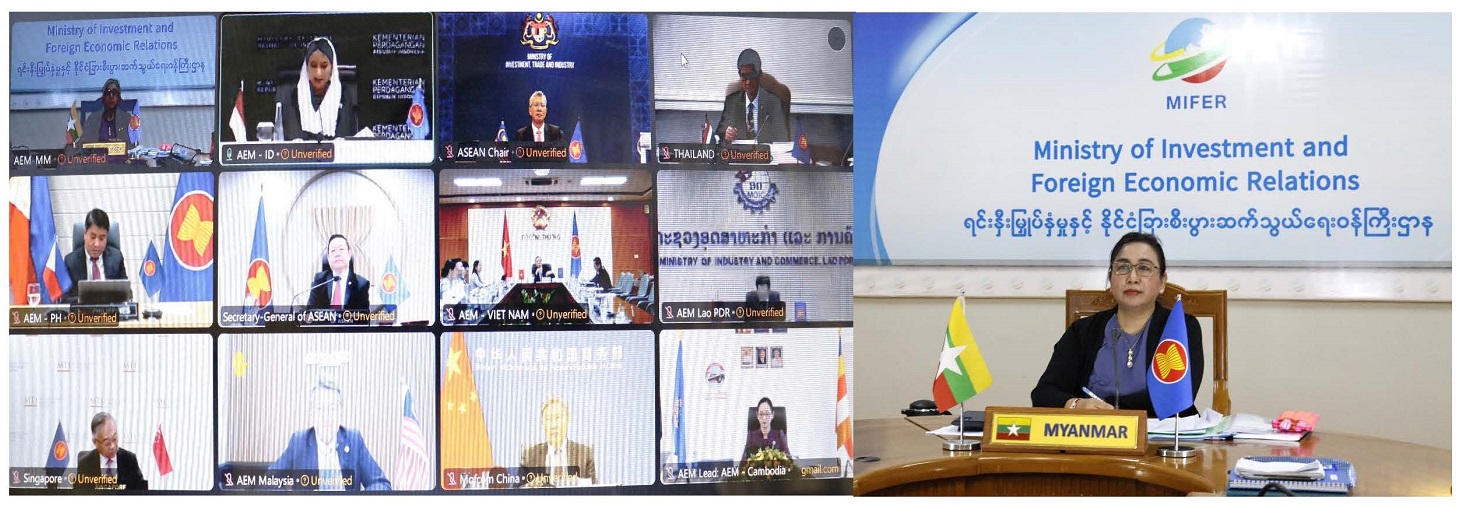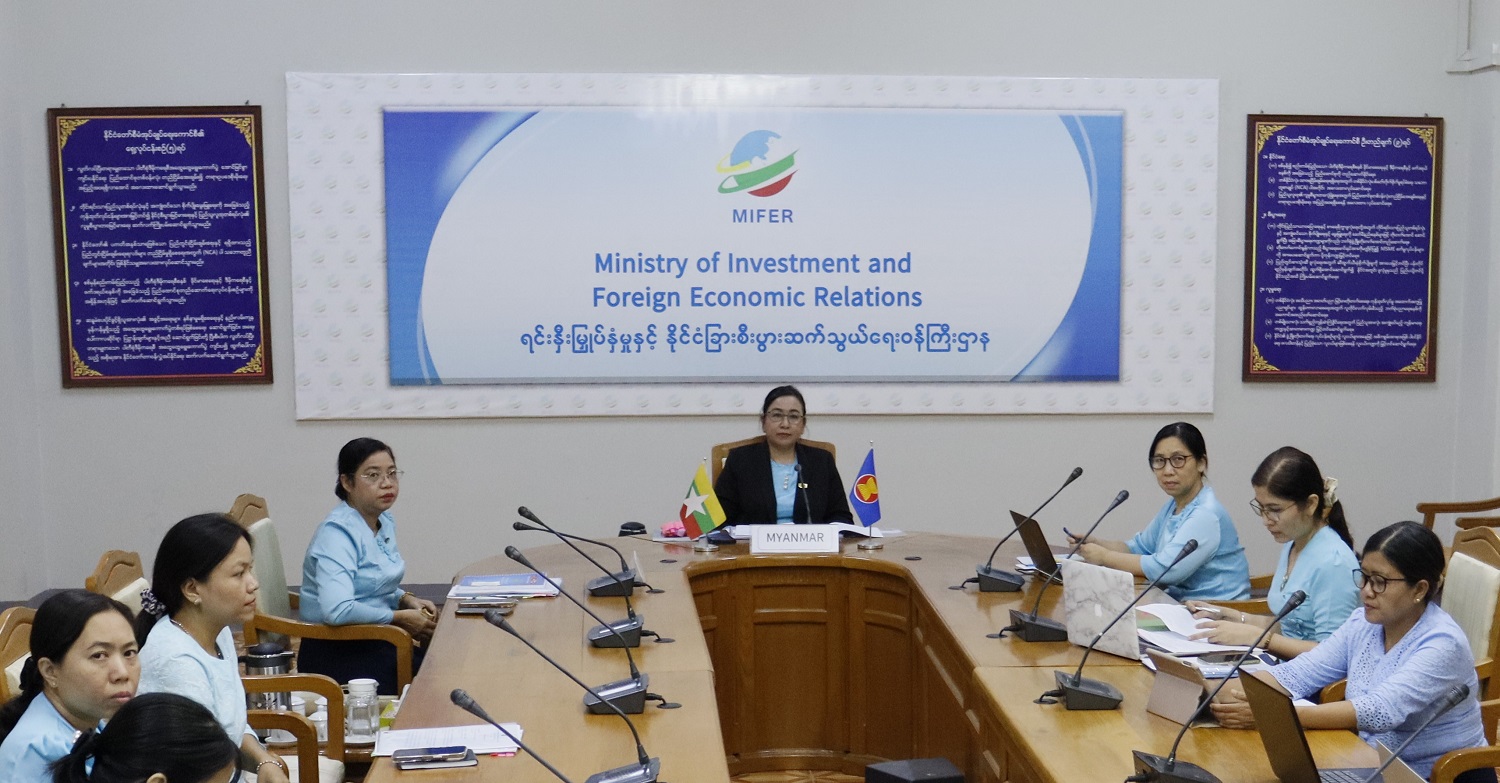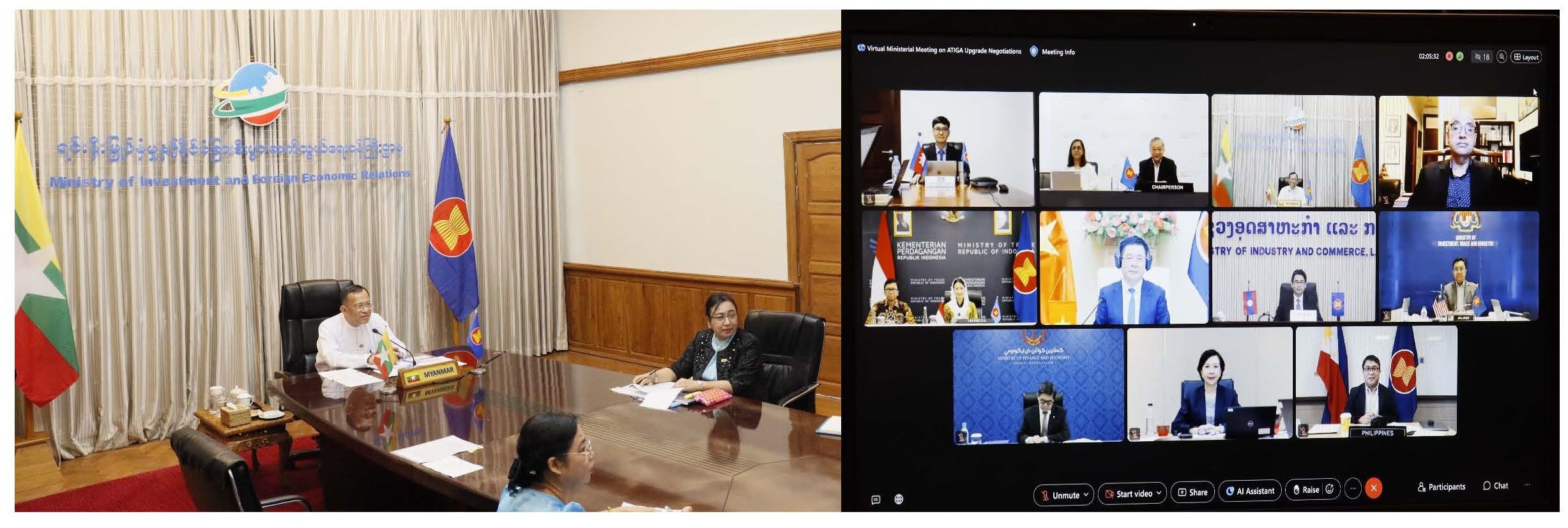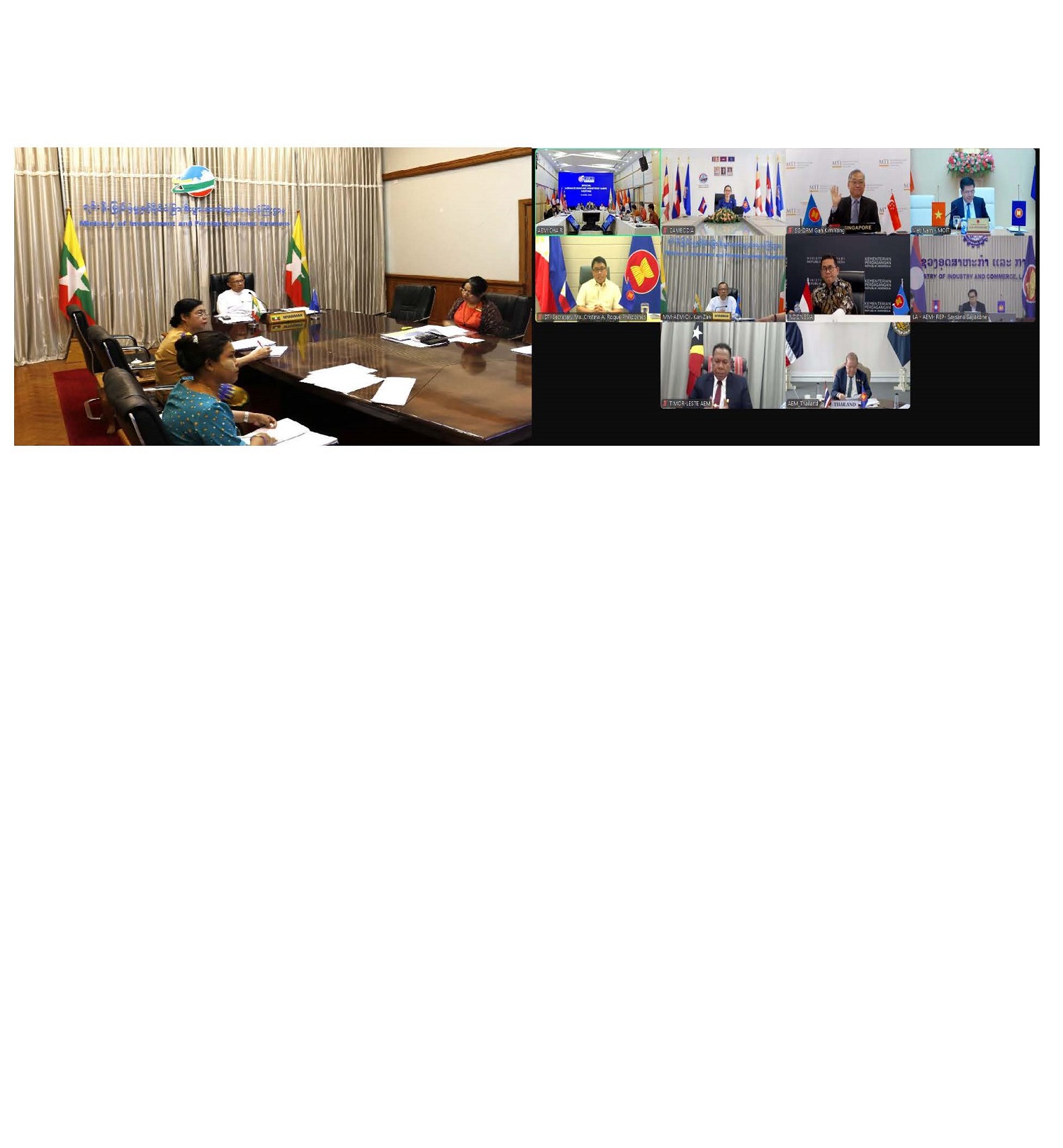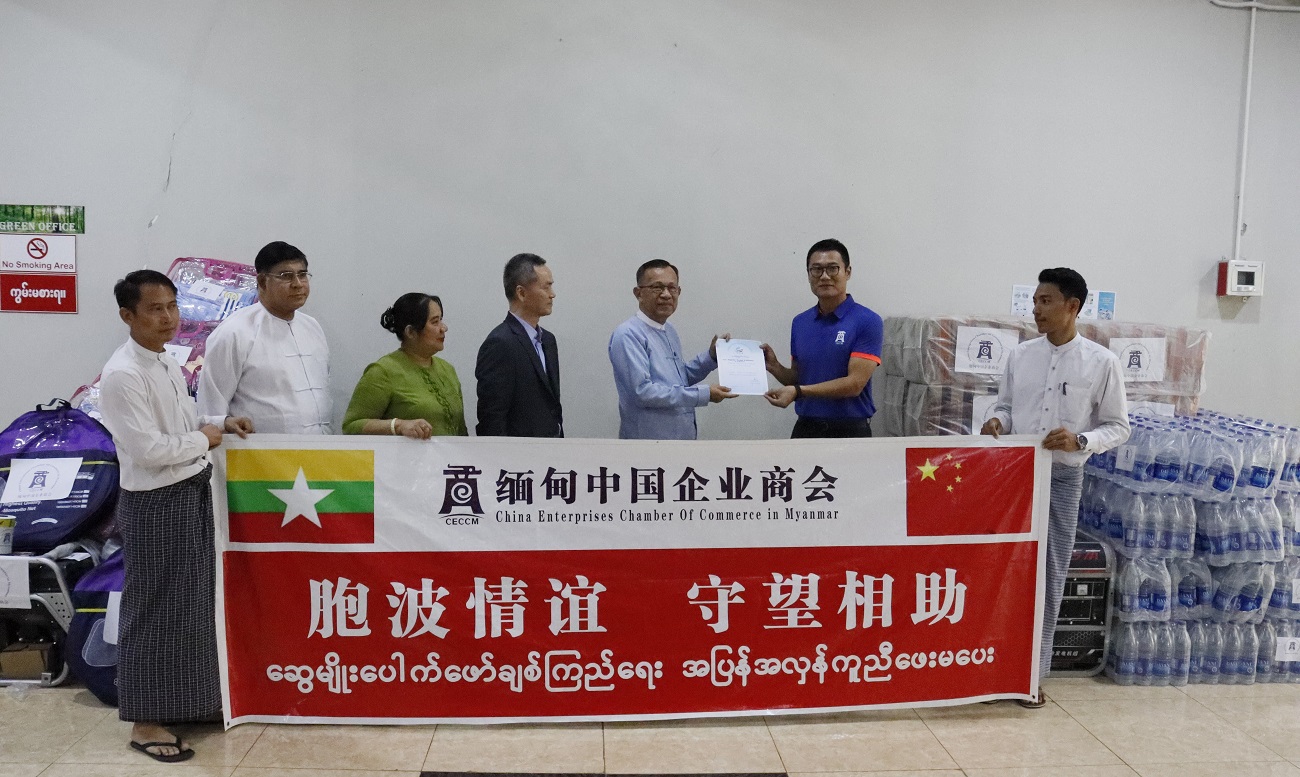24 November 2020
***
Your Excellency, Ranieri Sabatucci, Ambassador of the European Union to Myanmar,
Mr. Giacomo Solari, Head of Cooperation and Deputy Head of Mission at the Embassy of Switzerland,
Ms. Lise Nordgaard, Chargé d'Affaires at the Royal Norwegian Embassy in Yangon, and
Mr. Stephen Thomsen, Head of the OECD's Investment and Sustainable Development Unit,
To all of you, a very warm welcome.
Welcome also to the International Chambers present, and to the media who’ve tuned in today.
It’s good to be with you all today!
Let me begin by thanking all our friends – Norway, Switzerland, the EU, the OECD, ILO, AustCham, EuroCham, MCRB, MID, MGMA, MIC, and the UMFCCI for contributing to today’s event.
But more importantly, I’d like to thank you all for the excellent results achieved, together with us here at the Ministry of Investment and Foreign Economic Relations, as part of this second Investment Policy Review process.
Your advice, your friendship, and words of support – sometimes frank but always constructive – have proved invaluable throughout the years.
Let me also take a moment to express my sincere appreciation to the staff here at the Ministry, and at DICA in Yangon for your remarkable teamwork – delivering difficult reforms, supporting business and private enterprise, making it easier for investors to establish and expand existing investments, and for promoting Myanmar as an attractive investment destination.
You have done an outstanding job. This latest Investment Policy Review stands as a testament to your dedication and diligence.
Ladies and Gentlemen:
Responsible investment represents a cornerstone of this government’s vision – a vision of an economy and a society that works for everyone – that benefits the MSME on a street corner in Mandalay just as much as the big multinational up in the twin towers of Myanmar Plaza.
I welcome this opportunity to be with you - not just to talk about what we together have done to improve the investment enabling environment here in Myanmar – and we’ve done a lot – but also to talk about what we intend to do to sustain and improve this environment over the years to come.
It was American Founding Father, investment pioneer, and polymath, Ben Franklin who once wrote:
“The best investment is in the tools of one’s own trade.”
He also stressed:
"An investment in knowledge always pays the best interest"
The first Investment Promotion Review (IPR) launched back in 2014 – still early in our democratic transition – provided us with such a tool. An in-depth analysis accompanied by comprehensive policy recommendations that have helped lay the foundations of a new investment regime, and quality labor standards, and with it, a new era of quality investment into Myanmar.
And this investment in knowledge continues to pay dividends to this day!
We’ve made important progress across a range of areas.
In 2016, we merged our investment laws while offering a simplified set of regulations, providing a level playing field for both foreign and local investors alike – boosting investor confidence, and making us more competitive regionally and globally.
Environmental protection standards, responsible business conduct, and corporate social responsibility, respect for human rights, responsible sourcing practices within supply chains, and decent work for fair wages – all are now embedded within our national reform agenda thanks to the IPR process.
In June we ratified the ILO Minimum Age Convention setting a minimum age for employment, keeping more kids in school while prohibiting hazardous activities for those under 18 years of age.
This development has been acknowledged as a positive step, particularly, in the context of the current COVID-19 crisis, which threatens the rights, safety, and development of a large number of children in our country.
We’re also capitalizing on our substantial but untapped ‘gender dividend’ – by supporting more women entrepreneurs to succeed in business, and by promoting gender equality and non-discrimination within the workplace.
Myanmar is actively committed to achieving the Sustainable Development Goals by 2030. In this context, we are aware that women’s economic empowerment will be critical. Not only for the achievement of gender equality but also because it underpins the achievement of other goals.
But not only am I proud of what we have achieved to date – I’m also positive about the future.
Not just because foreign investment in our energy, manufacturing, and real-estate sector is growing, which it is.
Not just because foreign investment across the hundreds of high-quality projects approved since the first IPR are today providing hundreds of thousands of quality jobs for men and women throughout all States and Regions, which they are.
And not just because investment reforms we’ve pursued have made the overall investment approval process faster, more transparent, and more efficient, which it has.
Now is the Best Moment to Invest
I am optimistic because. If I had to choose a moment in my country’s history to be born, a moment in which I felt I had the surest chance of success – I would choose today. I would opt to be part of Generation Z!
Today our nation is more prosperous than at any time in living memory. Our democracy is stronger. Fewer of our people are experiencing poverty and more of our children are in school. Our people are living longer, happier, healthier lives than at any point in time.
And were an investor to ask – when do you think is the best time to invest here in Myanmar – I would say – today, right now!
The World Bank has recognized Myanmar as amongst its top 20 reformers on the Ease of Doing Business Index. The OECD calls the degree of statutory liberalization we’ve achieved in just five years as being ‘almost unprecedented’.
There is no better time than today to expand your investment portfolio in Myanmar. There is no better time to build a new business in Myanmar than today.
Never before has growth remained as consistently high – notwithstanding the pandemic. Our schools and universities are stronger, ensuring a new generation of Myanmar workers are prepared and ready to take on 21st-century challenges.
We also know that a healthy workforce is a productive workforce. And I know our health sector will recover from this pandemic stronger, and better, and more capable than ever before.
With this month’s signing of the Regional Comprehensive Economic Partnership, we now have in place a world-class Free Trade Agreement that has leveled the playing field, facilitating access to new markets, lowering the cost of exports, reducing tariffs and customs duties, and protecting IP.
Excellencies, Distinguished Guests, Ladies, and Gentlemen:
The people of Myanmar have spoken, and in doing so, they have granted us a clear mandate. They are counting on this government to deliver.
This was the message they sent when millions of our countrymen and women went to the polls on the morning of 8 November earlier this month.
Our ability to deliver smarter, more sustainable, and more inclusive growth, and to reduce inequality, will hinge on our ability to continue the change and transformation begun just 5 short years ago – delivering reforms that attract more investment from a wider variety of partners in a wider variety of sectors – reforms that reduce barriers and promote greater integration.
We’ll need to follow through on our commitment to connecting every household to the national grid by 2030. Which we will.
We will do so by leapfrogging carbon-based energy strategies with a continued commitment to green growth, including off-grid renewable energy, and with the effective and consistent implementation of environmental impact assessments - ensuring projects that fully comply with environmental laws, regulations, and management plans.
And we’ll need smart tax policies that attract quality, responsible investment
while deterring tax evasion – incentivizing companies to pay their fair share
for the roads and bridges, ports, and other public infrastructure they use.
We’ll also need an expansion of online tax payment platforms, tax deductions
for training expenses, and reforms to property tax. So, we’ll do that too.
We will need to build back better, and we must do so with a sense of urgency. Other countries are not waiting around for us to catch up.
Responding to a Changing World, COVID-19, and MERRP
Excellencies, Distinguished Guests, Ladies, and Gentlemen:
If we are to fulfill the promise we have made to Myanmar’s people – the promise of a stronger, more inclusive, more prosperous nation, then we must also pay attention to assumptions that underpinned previous investment policy reform efforts.
COVID-19 is easily the most severe pandemic of the modern age and perhaps the most significant global event of our lifetimes.
Myanmar has, like so many others, faced economic downturns and hardship.
Myanmar and the world have shifted in fundamental ways between the first and second IPR – some changes were caused by COVID-19, others hastened by it, others well underway before the pandemic struck.
As the world begins to rebuild, and as we turn our heads toward the future, we must take these shifts into account. This means reviewing assumptions that underpinned our Myanmar Investment Promotion Plan and making revisions where needed.
And, just as our new Recovery Plan has been designed to help rebuild our nation’s economy, FDI can sustain that recovery and advance it.
We will need to make it easier to secure permits, easier to obtain appropriate and lawful access to land via the Land Bank, greater transparency in tendering and project selection via the Project Bank, while ensuring prior, and informed consent of impacted communities and the traditional land use rights are respected.
These are precisely the actions called for as part of our new Myanmar Economic Resilience and Recovery Plan (MERRP).
Excellencies, Distinguished Guests, Ladies, and Gentlemen:
We know that countries that open up to FDI create more jobs and opportunities than those that do not.
The assistance and guidance made available to us via the second IPR will help us continue to promote responsible investment into Myanmar – the type that creates jobs, opens up new opportunities, sustains growth, and spreads prosperity.
My sincere gratitude to the team at the OECD. Your efforts will be met with equally strong cooperation on our part. And the need to work together – at a time when others are turning inward – could not be more urgent.
Because this is not just about making money. FDI builds bridges between our peoples, our cultures, and our countries.
It advances all of us, together.
When we share the risk, we share the reward.
When we succeed, we all benefit.
And as a testament to our shared success, we shall leave a legacy of modern ports and pipelines, of schools and skyscrapers, and smart factories and freeways so that when our children’s children reflect on which moment in Myanmar’s history, they believe offers them the surest chance of success – they too will agree that this decade was a defining moment in our history!
Thank you, ladies and gentlemen.

